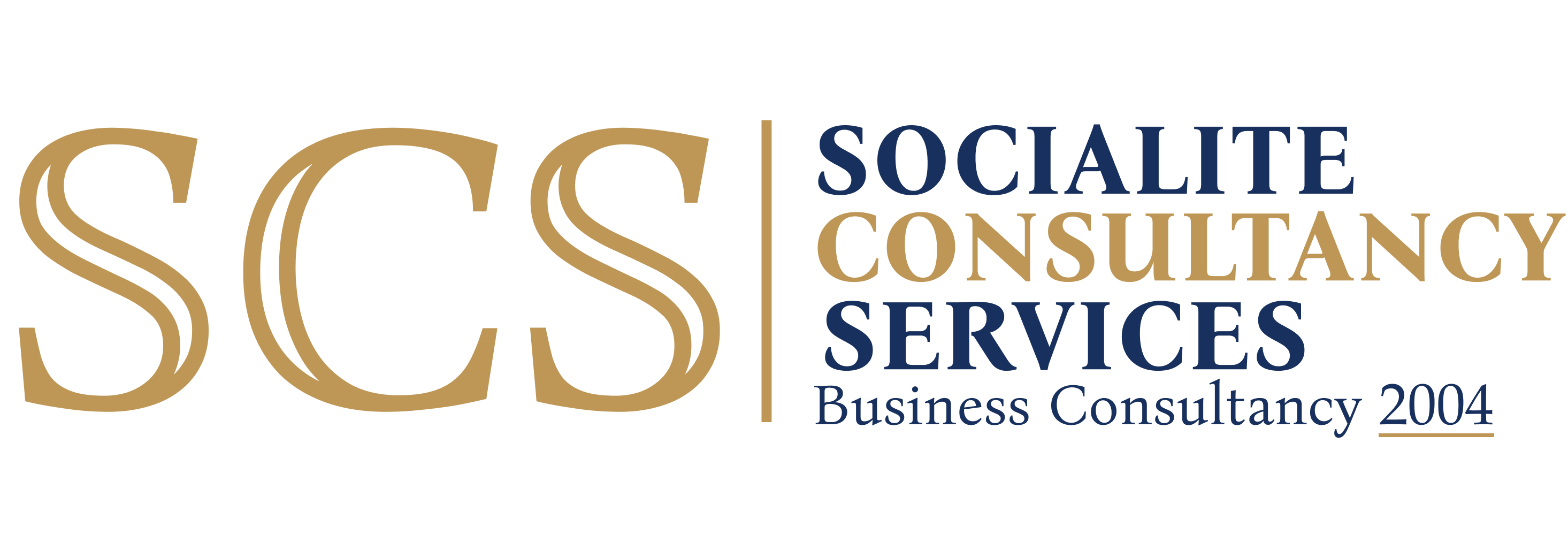How to Set Up a Free Zone Company in Dubai
Dubai’s Free Zones are among the most popular destinations globally for starting a business. Why? Because they make everything easier. You get 100% ownership, zero tax, quick registration, and access to world-class infrastructure. Whether you’re a solo entrepreneur, small startup, or a global company, Dubai’s Free Zones offer a smooth and straightforward way for company setup in Dubai freezone.
With the Dubai Economic Agenda ‘D33’ aiming to double the city’s economy by 2033, now is the best time to take advantage of this growing opportunity. In this guide, we’ll walk you through each step of Dubai free zone company formation – in simple terms that anyone can understand.
What is a Free Zone in Dubai?
A Free Zone (also called a Free Trade Zone) is a special business area where you can start a company with several benefits:
- You own 100% of your business (no local partner needed).
- You don’t pay corporate or income tax.
- You get fast registration with less paperwork.
- You can repatriate all profits and capital.
- You can hire employees and apply for visas.
- Simplified company setup with fast registration
- Low setup and operational costs
- Access to a global market
- No currency restrictions
- Specialized ecosystems tailored to different industries
Each Free Zone in Dubai is tailored to a specific industry (e.g. media, healthcare, technology, logistics), which helps create a focused and supportive environment for your business.
With Dubai’s Economic Agenda D33 aiming to double the city’s economy by 2033, Free Zones are expected to play a central role in attracting international investments and businesses. This makes the process of free zone business setup process Dubai increasingly appealing.
Step-by-Step Guide to Dubai Free Zone Company Setup

Let’s now walk through the process of setting up your company in a Dubai Free Zone. Whether you’re a solo professional or part of a larger team, the steps remain largely the same, though requirements may vary slightly based on the specific Free Zone.
Step 1: Choose Your Business Structure
Your business structure determines ownership rights, liability, and administrative procedures. Free Zones offer a few company formation structures, the most common being:
- Free Zone Establishment (FZE): Best for a single shareholder, who can be either an individual or a company.
- Free Zone Company (FZC or FZ LLC): Designed for two or more shareholders (individuals or companies).
Every Free Zone has its own rules for legal structures, so it’s wise to verify what’s available and permitted before proceeding. For freelancers or solo consultants, a freelancer permit may also be an option in some Free Zones.
Step 2: Select Your Business Activity
Before proceeding with your application, it’s important to define what your business will do. Your chosen activities will directly influence the type of license you need. Free zone business setup process Dubai covers a wide variety of sectors, such as:
- Trading Activities: Import/export, general trading, e-commerce
- Service Activities: IT services, marketing, education, consultancy
- Industrial Activities: Manufacturing, food processing, packaging
- Creative Sectors: Media, publishing, photography, content creation
- Health and Wellness: Healthcare services, wellness centers, telehealth
- Financial Services: Investment advisory, insurance consultancy
Certain activities are limited to specific Free Zones. Consulting with a business setup expert can help ensure your activity is permissible and categorized correctly.
Step 3: Choose a Suitable Free Zone
Dubai hosts over 30 Free Zones. Choosing the right one can enhance your business’s chances of success. Here are some popular options:
- DMCC (Dubai Multi Commodities Centre): Ideal for trading and commodities businesses
- Dubai Internet City: Best for tech and software companies
- Dubai Media City: Tailored for media and creative businesses
- Dubai Silicon Oasis: Designed for innovation and R&D
- Jebel Ali Free Zone (JAFZA): Ideal for logistics and industrial companies
- Dubai Healthcare City: Specializes in health and wellness businesses
- Dubai South: Perfect for logistics and aviation-linked businesses
The location, infrastructure, costs, and business support provided by each Free Zone are important factors to consider for smooth Dubai free zone company formation.
Step 4: Choose and Register a Trade Name
Choosing a name for your business is not just about branding—it must also meet legal requirements in the UAE. When selecting a trade name, keep the following in mind:
- Avoid terms that are offensive or against public morals
- Do not use names of countries, government bodies, or religious references
- Ensure it is not already in use or too similar to existing names
- Include the legal structure (FZE, FZC, DMCC, etc.) as part of the name
You can reserve your trade name online through the Free Zone’s official portal or the Dubai Department of Economic Development (DED).
Step 5: Apply for the Right Business License
Your business license is a key legal document that allows you to operate your business in the Free Zone. Common license types include:
- Commercial License: For trading, distribution, or goods-related businesses
- Industrial License: For production and manufacturing activities
- Service License: For consultancies, IT services, and education providers
- Media License: For media, publishing, and content creation
- E-commerce License: For digital and online-based businesses
Make sure your selected business activity aligns with your license to avoid delays in approval.
Step 6: Fulfill Capital Requirements
Some Free Zones require minimum share capital to be deposited, while others do not. Here’s a sample of capital requirements across major Free Zones:
- DMCC: AED 50,000 minimum (AED 10,000 per shareholder)
- DAFZA: AED 1,000 per share
- Hamriyah Free Zone: AED 150,000 for FZEs
- KIZAD: AED 150,000
- Twofour54: No minimum capital requirement
Depending on the Free Zone, you may need to provide proof of capital through a bank reference letter or share certificate.
Step 7: Select Your Office Space
You need a registered office to obtain your license. The office size also affects how many visas you can sponsor. Office types include:
- Flexi-desks: Affordable, shared spaces suitable for freelancers and small startups
- Executive offices: Private office space for mid-sized businesses
- Warehouses and industrial units: For manufacturing and storage
- Customizable offices: For large enterprises requiring specific infrastructure
Most Free Zones offer a variety of leasing options and support to find the right fit.
Step 8: Obtain Pre-Approvals and Register Your Business
Once you have selected your office space within the Free Zone, the next crucial step is obtaining pre-approvals and formally registering your company. This process ensures that your business complies with the Free Zone’s legal and regulatory requirements, forming the core of the free zone business setup process Dubai.
1. Initial Approval
Before proceeding with full registration, you must secure an initial approval from the Free Zone authority. This approval confirms that your business activities align with the Free Zone’s regulations. The required documents include:
- A completed application form.
- Business plan.
- Passport copies of shareholders and managers.
- Bank reference letter (if required).
- No Objection Certificate (NOC) from the current sponsor (for UAE residents).
- Letter of Intent.
- Registry Identification Code Form (RIC) for managers/directors.
Once submitted, the Free Zone authority will review your application and provide preliminary approval, allowing you to proceed with company registration.
Documents Required for Freelancers
Freelancers looking to establish themselves in a Free Zone have a simpler registration process and fewer documentation requirements. They typically need to submit:
- Application for Registration: A basic form with personal and professional details.
- Curriculum Vitae (CV): A resume showcasing professional experience, qualifications, and expertise in the chosen field.
- Bank Reference Letter: A financial reference from a bank, confirming credibility and financial stability.
Once the Free Zone authority grants initial approval, you can proceed with the formal company registration and licensing process.
2. Company Registration
Once you receive the initial approval from the Free Zone authority, the next crucial step is company registration. This process involves the payment of registration fees and the submission of essential documents to formalize your business entity. These documents include:
- Completed Registration Form: This form captures key details about your company, including its structure, ownership, and business activities.
- Memorandum and Articles of Association (MOA & AOA): These documents outline the company’s operational framework, ownership structure, and internal regulations. They must be notarized and attested before submission.
- Board Resolution Appointing a Manager/Director: This resolution officially assigns key management roles within the company. It must also be notarized and attested to be legally valid.
- Power of Attorney for Manager/Director: If a manager or director is appointed, a notarized and attested Power of Attorney (PoA) is required to grant them the legal authority to act on behalf of the company.
- Passport-Sized Photograph of the Manager/Director: A recent photograph of the appointed manager or director is necessary for official records.
- Share Capital Details: Depending on the Free Zone, there may be a minimum capital requirement, and proof of the capital investment may be needed in some cases.
Once all the required documents are submitted and verified, your Free Zone company will be legally registered, bringing you one step closer to operational status.
Step 9: Obtain Your Business License and Visas
After successfully registering your company, the next step is to obtain the necessary licenses and permits that will allow you to legally operate your business. This involves:
- Signing a Lease Agreement for Office Space: Most Free Zones require businesses to have a registered office. Depending on your needs, you can opt for a flexi-desk, shared office, or dedicated office space within the Free Zone. The lease agreement must be signed and submitted as part of the licensing process.
- Receiving the Business License: Once your office lease is finalized, the Free Zone authority will issue your official business license, which authorizes you to conduct your chosen business activities.
- Applying for Employee and Investor Visas: With the trade license in place, you can apply for residence visas for yourself, your employees, and any investors involved in the business. The number of visas allowed depends on the office space type and Free Zone regulations.
- Opening a Corporate Bank Account: To manage financial transactions, you must open a corporate bank account with a UAE-based bank. This process requires submitting your trade license, passport copies, and other relevant documents.
Once these steps are completed, your Free Zone company is fully operational, allowing you to focus on running and expanding your business.
Setting up a company in Dubai freezone offers numerous benefits, including full ownership, tax exemptions, and an easy registration process. By following the steps outlined in this guide, you can successfully complete your Dubai freezone company formation.
Each free zone in Dubai has its own regulations, so consulting with the relevant authority or seeking professional Dubai freezone company setup services can make the process even smoother. Whether you are a startup, freelancer, or multinational corporation, Dubai free zones provide the ideal environment to grow your business.
Costs of Setting Up a Free Zone Company in Dubai

Understanding the cost structure helps you budget effectively:
|
Item |
Estimated Cost (AED) |
|
Trade License |
10,000 – 50,000 |
|
Registration Fee |
9,000 – 25,000 |
|
Flexi Desk Lease |
10,000 – 20,000/year |
|
Private Office Lease |
25,000 – 100,000/year |
|
Visa (per person) |
3,000 – 5,000 |
|
Medical Insurance |
500 – 2,000/person |
These are estimated costs and vary based on the Free Zone, office type, and business activity.
Qualifying for Corporate Tax Exemptions
Free Zone companies in Dubai can enjoy tax exemptions if they meet the following conditions:
- Must be registered within a Free Zone and hold a valid license
- Business activities must be limited to Free Zones or international markets
- No direct business with the UAE mainland without the required permits
- Must comply with UAE’s Economic Substance Regulations (ESR)
- Maintain proper financial records and timely tax filings
Consulting a tax advisor or setup expert like Socialite Consultancy Services ensures compliance while maximizing tax benefits.
Why Partner with Socialite Consultancy Services?
At Socialite Consultancy Services, we make business setup in Dubai Free Zones simple, smooth, and stress-free. Our services include:
- Guidance on selecting the right Free Zone for your business
- Trade name registration and license processing
- Assistance with visa and immigration requirements
- Help in finding office space
- Corporate bank account opening support
With years of experience and hundreds of successful company setups, we understand the process and ensure it’s done right the first time.
Ready to Launch Your Business?
Starting a business in a Dubai Free Zone opens doors to growth, profitability, and global reach. Whether you’re just starting out or expanding internationally, Free Zones offer a flexible, tax-efficient platform.
Reach out to Socialite Consultancy Services today for a free consultation. We handle the complexities, so you can focus on your business goals.
Frequently Asked Questions (FAQs)
-
What is a Free Zone company?
A Free Zone company is a business formed in a designated UAE Free Zone that offers full foreign ownership, tax exemptions, and fast setup procedures.
-
How long does the setup process take?
Typically 2 to 7 business days, depending on the Free Zone and activity.
-
Can I own 100% of my business?
Yes. Free Zone companies allow complete foreign ownership.
-
Can I trade with UAE mainland clients?
Yes, but only through a licensed local distributor or after acquiring additional approvals.
-
Do I need an office to get a license?
Yes, even a shared desk or virtual office is required in most Free Zones.
-
Can I open a bank account with a Free Zone company?
Yes. Most UAE banks accept Free Zone companies with valid documents.

